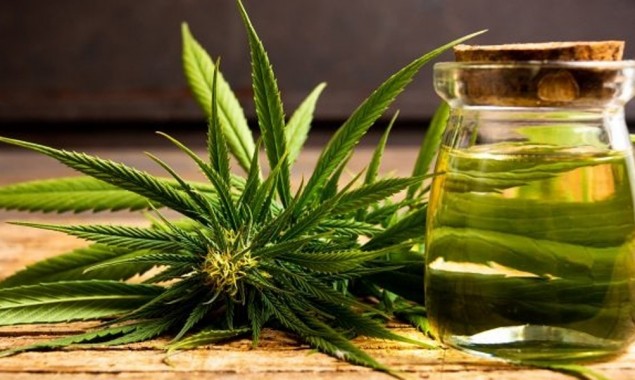Industrial cannabis production will generate $1 billion in revenue
Federal Minister for Science and Technology Fawad Chaudhry said that the federal...

Cannabis mum daughter name
Hindus use cannabis in many of their festivals and other sections of the society have been using it as medicine and for attaining a state of euphoria for centuries.
But in 1961, cannabis was declared illegal by the United Nations due to its alleged harmful use. The threat of its alleged harm overcame the argument for its social and cultural use.
This week, the United Nations amended its 1961 Single Convention on Narcotics Drugs to change its classification of cannabis.
This means that cannabis, which was classified in Schedule IV of the law as a deadly and illicit drug such as heroin, will now only be in Schedule I, meaning that U.N. Reclassified cannabis as a less dangerous drug
But its recreational use will still be banned internationally. However, a country may, if it so desires, allow in its law for recreational purposes.
Of the 53 members of the UN Drug Commission, 27 voted in favour of removing cannabis from the list of dangerous drugs, one country did not vote and 25 voted against it.
According to media reports, Pakistan, along with Russia, China, Japan, Singapore and Iran, has opposed it. While the United States and the European Union have supported.
Speaking to The Wire, an Indian diplomat said that it was mostly a vote between developing and Islamic countries rather than the First World.
India was the only country that voted with the First World, he said.
Supporting or opposing cannabis use is basically divided into two categories: Addiction is a sin or disease and its medical use for the treatment.
Atal Ambekar, a former adviser to the UN Drug Enforcement Administration, said the amendment would not have much impact on the ground but was commendable. He described the opposition to the law as “ideological”.
Cannabis has been defamed without any solid scientific evidence,” he added. This is the first step in reducing the stigma.
According to the United Nations, cannabis is still the most widely used drug in the world, even though it is completely banned in many countries. According to it, in 2017, 188 million people used it. It is also used by thousands of people in Pakistan for entertainment purposes.
But in most countries of the world, its use for recreational purposes is banned. It is also banned in Pakistan and India but is not fully implemented, as is the case in many other countries. (Cannabis is allowed in India for religious reasons as it is used in many festivals, even Shiva is called the god of cannabis.)
Some countries, such as Canada and South Africa, legally allow its use for recreational purposes. The United States, which guided cannabis in the schedule in 1961, has different laws for its use in different states.
At least 15 states legally allow it to be used for recreational purposes. Similarly, many states allow it to be used as a drug, but federal law still prohibits its use.
When was cannabis found in South Asia?
Cannabis is believed to have been first found in Central Asia from where it was brought to the subcontinent by human migration between 1000 and 2000 BC. Geographer Barney Warf believes it probably came here during the Aryan invasions.
Evidence of its use in the region is also found in archaeology.
For example, the Hindu scripture Atharva Veda states that it was used to treat the sick and to ‘control evil spirits’.
European travellers in the Middle Ages also wrote about the use of cannabis in the region.
In the 16th century, the Portuguese historian Garcia d’Orta wrote on cannabis, “I believe its use is common and it is no secret that most people use it.”
It is also used in ancient Arabic texts. The 14th-century Egyptian historian Al-Maqrizi described the popularity of cannabis in Cairo’s pleasant gardens.
The long history of the drug and the tendency in major countries not to criminalize it are likely to dispel misconceptions about cannabis.
However, a change in its rating could have an immediate effect on the associated industry for a very different reason, and that is COVID-19.
The United Nations says the impact of COVID-19 on drug markets is still difficult to predict, but its impact could be far-reaching.
U.N. warned in the 2020 World Drug Report on the 2008 economic crisis that just as consumer consumption of cheap synthetics or injections had increased, there was still a risk that governments would cut drug budgets.
However, countries that have lifted the ban should learn from their experience and act accordingly.
Catch all the Health News, Breaking News Event and Latest News Updates on The BOL News
Download The BOL News App to get the Daily News Update & Follow us on Google News.